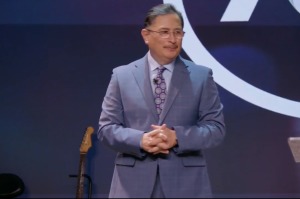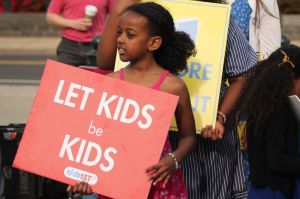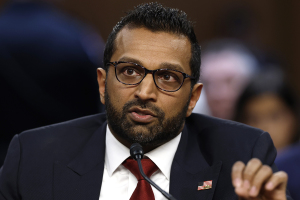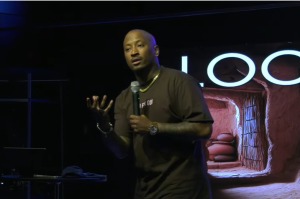Spiritual Leaders Answer Life's Most Complex Questions
Acclaimed French filmmakers Jules and Gedeon Naudet explored some of the most complex questions bewildering the world's population in a television documentary that aired Sunday.
And who better to answer these questions than 12 respected spiritual leaders whose faiths represent 5 billion followers worldwide, said one filmmaker.
Both filmmakers, who created the award-winning "9/11" documentary, were in the World Trade Center creating a piece on New York's firefighters when the terrorist attacks took down the Twin Towers on Sept. 11.
Convinced that he was going to die, Jules Naudet asked himself questions that he believes most people asked themselves that day.
"These questions popped into my head: Why am I here? What is the meaning of my life?" said Jules. "I think the common one most people asked was 'Where was God that day?'"
"How do you deal with death having been confronted by it so directly, so violently?" Gedeon posed. "How do you make sense of it?"
The questions took the filmmakers around the world to spiritual leaders of 12 different faiths in search for answers to the meaning of life.
"It's been some of the darkest moments in religious life in all of history when in the name of God, we kill people," said Bishop Mark Hanson, presiding bishop of the Evangelical Lutheran Church in American and president of the Lutheran World Federation, in the documentary.
"I believe in the reality of spiritual warfare," said Dr. Frank Page, president of the Southern Baptist Convention. "I believe God and Satan are constantly battling for the hearts and souls of men and women."
In the two-hour television special - "In God's Name" - on CBS, the featured spiritual leaders spoke about violence, hatred, faith, peace, unity tolerance and hope.
What the filmmakers discovered was that these leaders have much more in common than most think.
"Suddenly, we became much more respectful of different faiths, different cultures, much more tolerant also," said Gedeon. "We found out in the end that there is much more that those leaders have in common than things that divide them."
"That was one of the extraordinary things to discover," he added.
The documentary conveys a message that there is more that unites everyone, across religions and faiths, than that which divides them, Jules explained.
"There is so much misunderstanding and so much preconceived ideas that we have, and unless we make the effort to knock on the door of a neighbor and talk to them and discover basically at the end that there's really not much difference at all," Gedeon highlighted.
One of the biggest misunderstandings following 9/11 is about Islam.
"We consider that looking at Islam as a violent religion is the worst misunderstanding about Islam," said Grand Ayatollah Mohammed Hussein Fadlallah, Lebanon's most senior Shia cleric.
And people on the right tend to only listen to people on the right and think the people on the left are wrong, Jules cited Hanson as saying. And people on the left behave the same way.
"We have a tendency to only listen to our own voices," said Jules.
"I don't think the way we're living today is what God intends for us," said Hanson in the documentary.
But in the midst of tragedies and divisions, the spiritual leaders believe God is there.
"God comes and appears in the corners of life where you weren't expecting and will open a door in any kind of situation even when you think ... the hope is nothing more," said Archbishop of Canterbury Dr. Rowan Williams.
"The rough and difficult time is what brings people together and strengthens their faith," commented Alexei II, patriarch of Moscow and head of the Russian Orthodox Church. "We have a saying, 'unless there's thunder, people don't make the sign of the cross.'"
Other leaders featured in "In God's Name" include Amma, a Hindu spiritual leader; Pope Benedict XVI, head of the Roman Catholic Church; the Dalai Lama, spiritual leader of Tibetan Buddhists; Michihisa Kitashirakawa, Jingu Daiguji (High Priest) of the Shinto Grand Shrine of Ise; Yona Metzger, Ashkenazi Chief Rabbi of Israel; Muhammad Sayyed Tantawi, Sheikh of Al-Azhar and a prominent Sunni Muslim leader; and Joginder Singh Vedanti, Jathedar of the Akal Takht, the Sikhs' highest authority.



























